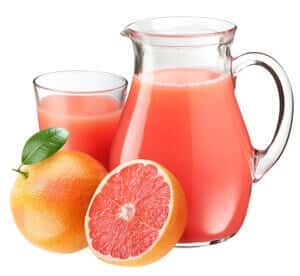
Q. I am wondering how far the consumer is supposed to take interaction warnings. For example, I have been told that my blood pressure medicine diltiazem is not to be taken with grapefruit. That was confirmed by my pharmacist and a reference book on medications.
There is nothing about a grapefruit interaction in my drugstore print-out. That leaves me confused. My pharmacist gave me a list of things that might interact with diltiazem. It included pomegranate, lime, CoQ-10, barley, and some vitamins.
What does it all mean and what is the consumer to do? This drug interaction stuff is incredibly confusing.
A. You have stumbled through the looking glass into the mysterious world of drug interactions. Although there is no Queen of Hearts or Mad Hatter, this is a confusing place.
Doctors and pharmacists are so busy these days that they rarely have time to look up potential drug interactions. Their computers, smart phones and tablets all have drug interaction checkers, but they get so many warnings that they frequently override or ignore the alerts. Determining which ones are serious and which are not worth worrying about is one of the great challenges in modern medicine.
Diltiazem (Cardizem, Cartia XT, Dilacor XR, Tiazac, etc.) is prescribed primarily for heart problems, though some physicians still use it to help with blood pressure control. The official prescribing information lists a number of drug interactions with diltiazem including:
- Benzodiazepines (midazolam and triazolam)
- Buspirone
- Carbamazepine
- Cimetidine
- Clonidine
- Cyclosporine
- Quinidine
- Rifampin
- Statins
This is only a partial list of potential interacting compounds. Many other medications could cause serious complications with diltiazem. This demonstrates how inadequate the FDA’s official prescribing information is. Despite inadequacies, this is what most pharmacy leaflets use as their basis.
Although there is no mention of an interaction with grapefruit in the official package insert, there is evidence that grapefruit could increase blood levels of diltiazem and that could lead to side effects such as lower blood pressure or slower heart rate.
For more information about drug interactions in general and grapefruit interactions in particular we suggest you download our Guides to:
Drug and Food Interactions (FREE)
and
Drug and Nutrient Interactions (FREE)
and
Grapefruit Interactions (FREE)

